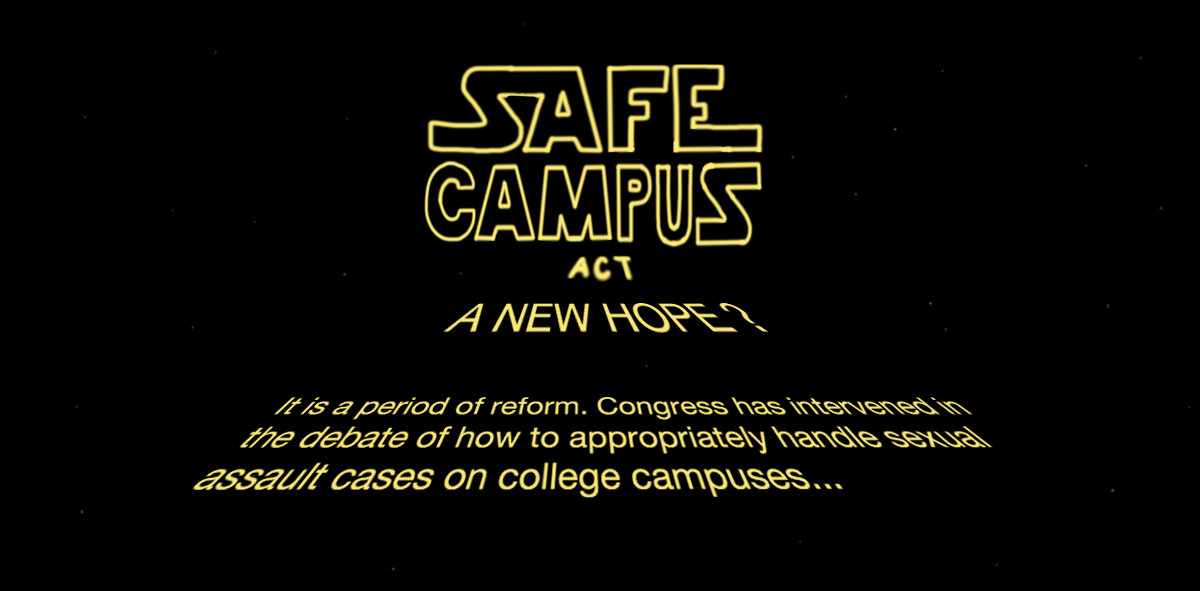The Safe Campus Act of 2015, a piece of legislation recently proposed in the House of Representatives, would change the way colleges and universities handle reports of sexual misconduct on their campuses, most notably through procedural standards and greater law enforcement involvement.
This bill lays the groundwork for defining the roles of college administrations in incidences of sexual misconduct. If a student alleges an incident, he or she has the choice of involving law enforcement. Should a student choose to not press charges and involve police, the college cannot launch an internal investigation nor punish a student with the conduct code. In this sense, college administrations are being pushed towards a more supportive role, rather than an investigative or punitive one that they are often unequipped to fulfill. Instead, this bill encourages colleges to work to support law enforcement and to provide students with resources for understanding and handling the emotional and mental repercussions of sexual trauma.
Procedural standardization is also a key feature of this bill. Many colleges do not have established due process standards, and often colleges may investigate and punish students with the conduct code regardless of whether a student is pressing charges. The Safe Campus Act outlines when a federally-funded college can and cannot investigate an alleged incident, when interim measures can be taken and how to handle due process. This sort of standardization not only makes federal enforcement of procedural infractions easier, but it also eases the burden on students. Often students do not fully understand the process of reporting an incident because it varies from college to college, and this standardization can provide some insight and guidance.
However, the standardization still has some grey areas that need to be addressed. Given the emotional stress that accompanies an incident, students may feel like a police report is overwhelming or intimidating. The procedures undertaken for students who choose to not involve the police need to be clarified. The bill also says that colleges will be able to set their own standards of evidence, which is contrary to the point of standardization and leaves a large part of an investigation contingent on college policy that may have outside motives.
Finally, seeing as this bill proposes more involvement of law enforcement, colleges need to focus on making a police report a good option for students, rather than an unpleasant last resort. Campus police departments need to have thorough and standard training on how to handle the sensitivity of sexual misconduct incidents properly. Colleges also need to maintain an active role in providing this training and other resources for students subject to emotional trauma. While they no longer may investigate or pursue punitive action, colleges should not take a passive role — rather, they should work to provide an extensive, supportive network for students and to help the police respond to allegations of sexual assault sensitively.

